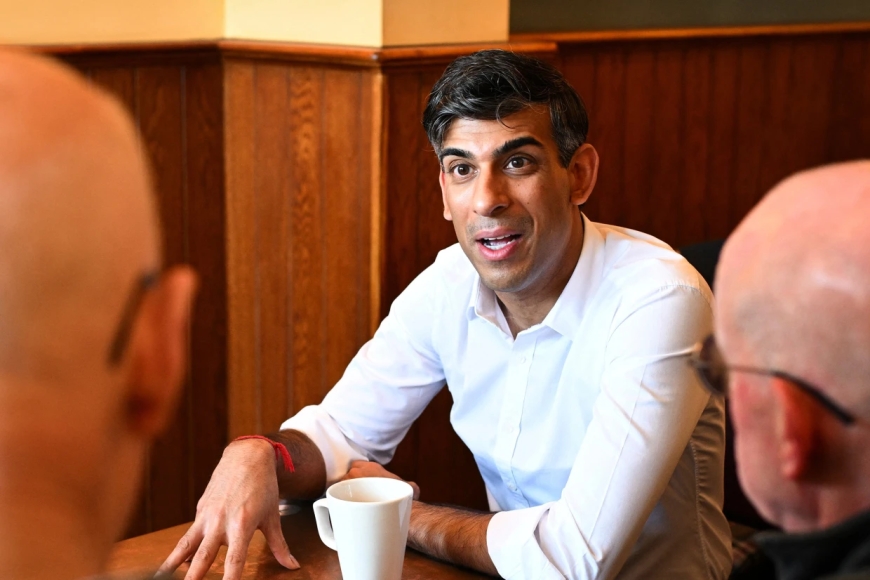Sunak’s National Service Proposal Grabs Attention Amidst U.K. Election Campaign

Prime Minister Rishi Sunak has announced a plan to reintroduce national service for 18-year-olds in the United Kingdom, marking the first such proposal in over 60 years. This initiative aims to energize his faltering election campaign ahead of the upcoming general election on July 4.
Sunak, during a visit with veterans in Northallerton, England, emphasized that if the Conservative Party secures victory, all 18-year-olds will be required to undertake a year of mandatory military or civilian service. This plan revives the concept of national service, which the U.K. discontinued in 1960. Historically, Britain enforced military conscription for men and some women during World War II and maintained mandatory military service for men from 1947 to 1960.
Under Sunak’s proposal, a select group of 30,000 out of an estimated 700,000 18-year-olds would spend 12 months in the military, focusing on areas such as logistics and cyber defense. The remainder would engage in community service, dedicating one weekend a month to work with charities, hospitals, police, fire services, or other community groups.
The implementation details remain unclear, with Home Secretary James Cleverly stating that no one would be forcibly enlisted in the military. Cleverly highlighted that the primary objective is to foster social cohesion by encouraging young people to interact with individuals from diverse backgrounds.
The Conservative Party estimates the national service plan will cost £2.5 billion annually, funded partly by reallocating £1.5 billion from the U.K. Shared Prosperity Fund, designed to revitalize impoverished communities. The Labour Party criticized the proposal as a "desperate" and unfunded commitment from a party "bankrupt of ideas." Former Labour Home Secretary Alan Johnson dismissed the plan as “compulsory volunteering,” predicting it would not materialize.
Prime Minister Sunak’s election announcement came unexpectedly, taking even his party members by surprise. His campaign kickoff was marred by rain and protests, symbolically underlined by a visit to the Belfast shipyard where the Titanic was built—a detail his opponents highlighted.
Keir Starmer, leader of the opposition Labour Party, launched his campaign in Lancing, emphasizing economic security, border control, and national security as the pillars of his party’s platform. Starmer, who has shifted Labour towards the political center since succeeding Jeremy Corbyn, positioned himself as a candidate of change against the backdrop of Conservative turmoil. He pointed to the Conservatives' handling of the COVID-19 pandemic, the cost-of-living crisis exacerbated by Russia’s invasion of Ukraine, and internal scandals as evidence of their failure.
Starmer sought to reassure undecided voters of Labour’s competence, stating, “The very foundation of any good government is economic security, border security, national security.” He emphasized his working-class roots and his journey from a toolmaker’s son to a former chief prosecutor, appealing to voters seeking stability and reliability.
As the election date approaches, both parties aim to sway a public weary of recent crises and scandals. Sunak’s national service proposal and Starmer’s pledge for economic and national security will be pivotal in influencing voters as the U.K. prepares for its first election since 2019.













































